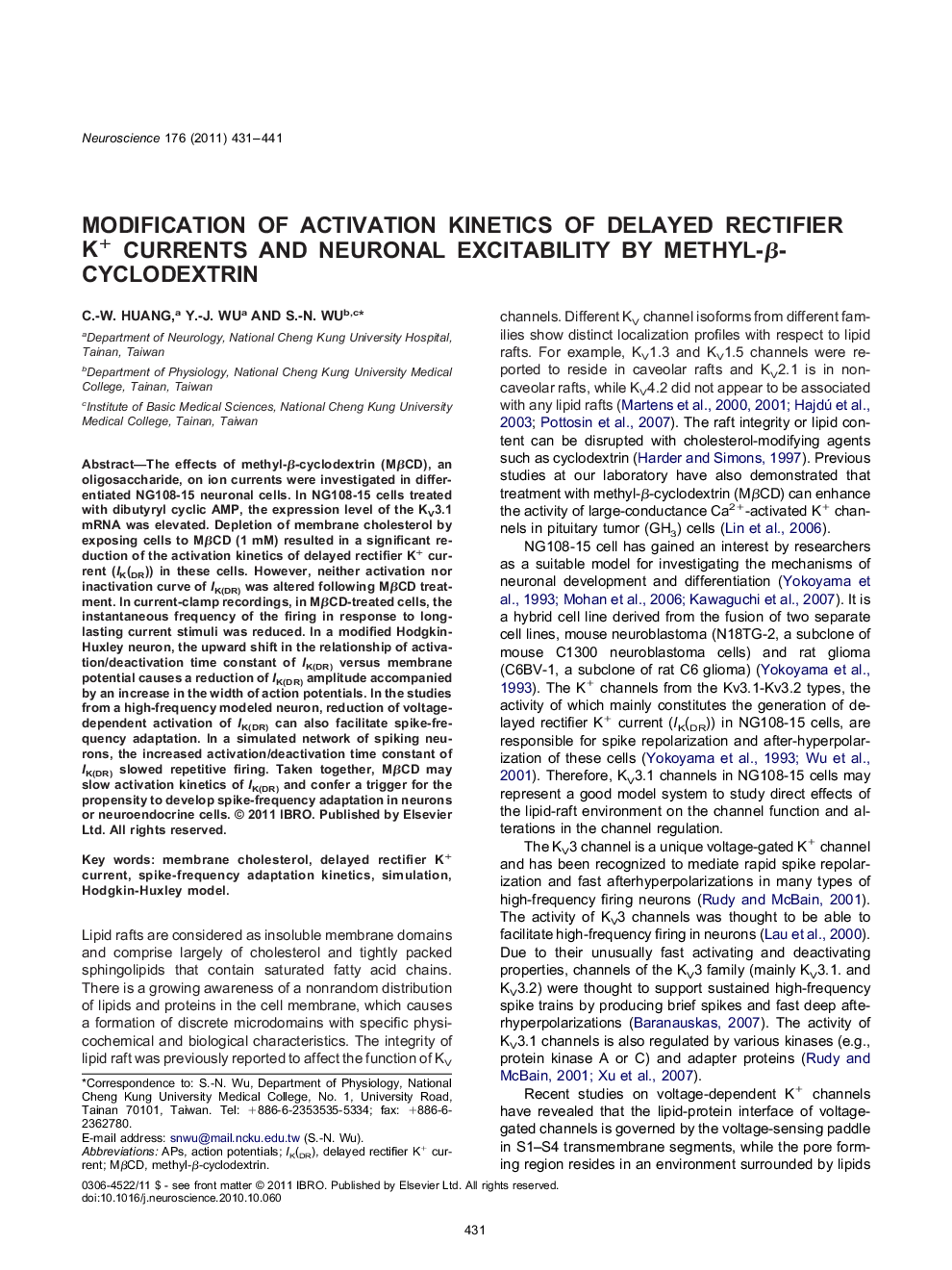| Article ID | Journal | Published Year | Pages | File Type |
|---|---|---|---|---|
| 6276722 | Neuroscience | 2011 | 11 Pages |
The effects of methyl-β-cyclodextrin (MβCD), an oligosaccharide, on ion currents were investigated in differentiated NG108-15 neuronal cells. In NG108-15 cells treated with dibutyryl cyclic AMP, the expression level of the KV3.1 mRNA was elevated. Depletion of membrane cholesterol by exposing cells to MβCD (1 mM) resulted in a significant reduction of the activation kinetics of delayed rectifier K+ current (IK(DR)) in these cells. However, neither activation nor inactivation curve of IK(DR) was altered following MβCD treatment. In current-clamp recordings, in MβCD-treated cells, the instantaneous frequency of the firing in response to long-lasting current stimuli was reduced. In a modified Hodgkin-Huxley neuron, the upward shift in the relationship of activation/deactivation time constant of IK(DR) versus membrane potential causes a reduction of IK(DR) amplitude accompanied by an increase in the width of action potentials. In the studies from a high-frequency modeled neuron, reduction of voltage-dependent activation of IK(DR) can also facilitate spike-frequency adaptation. In a simulated network of spiking neurons, the increased activation/deactivation time constant of IK(DR) slowed repetitive firing. Taken together, MβCD may slow activation kinetics of IK(DR) and confer a trigger for the propensity to develop spike-frequency adaptation in neurons or neuroendocrine cells.
Research highlightsâ¶Depletion of membrane cholesterol by exposing cells to MβCD (1 mM) resulted in a significant reduction of the activation kinetics of delayed rectifier K+ current (IK(DR)) in NG108-15 neurons. â¶In MβCD-treated cells, the instantaneous frequency of the firing in response to long-lasting current stimuli was reduced. â¶In the studies from a high-frequency modeled neuron, reduction of voltage-dependent activation of IK(DR) by MβCD can facilitate spike-frequency adaptation. â¶MβCD may slow activation kinetics of IK(DR) and confer a trigger for the propensity to develop spike-frequency adaptation in neurons.
